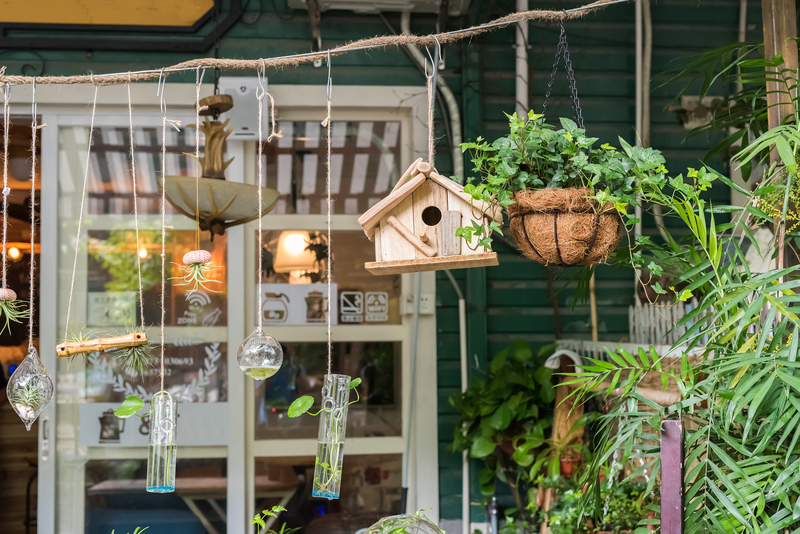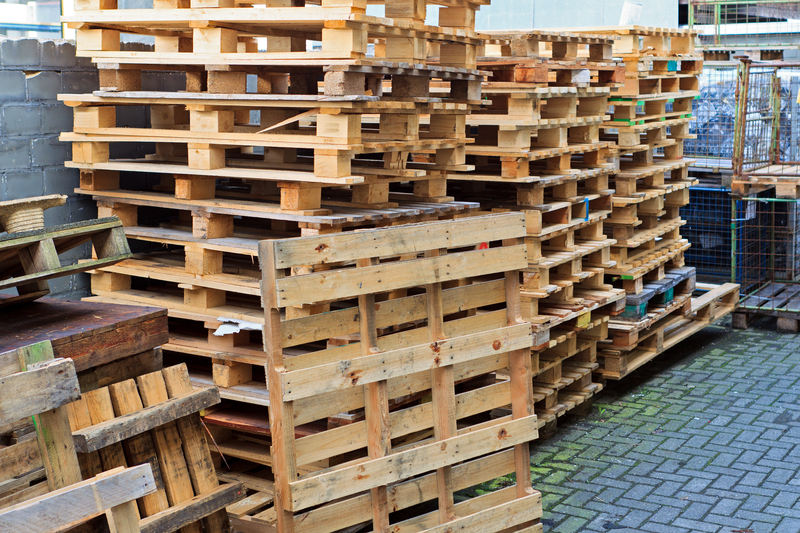Mapping Our Progress towards a Zero Waste Festival
Posted on 14/10/2024
With the rise of global environmental awareness, the concept of zero waste has gained significant momentum. From reducing plastic usage to implementing recycling strategies, individuals and businesses are taking measures to reduce their environmental footprint. Festivals, on the other hand, have long been associated with a large amount of waste generation. However, with increasing efforts towards sustainability, it is now possible to organize a zero waste festival.
In this article, we will explore the steps towards achieving a zero waste festival, its benefits and drawbacks, along with some practical tips and takeaways for event organizers and attendees.
The Concept of Zero Waste
Zero waste is a management approach that aims to eliminate the production of waste materials and utilize resources efficiently. It follows the principle of 'reduce, reuse, recycle' and promotes a circular economy where materials are reused or repurposed instead of being sent to landfills or incinerators.

Moving Towards Zero Waste Festivals
Festivals are notorious for generating large amounts of waste due to factors such as single-use plastic cups, food packaging, and decorations. However, with careful planning and execution, it is possible to minimize this impact. Here are some steps towards organizing a zero waste festival:
1. Set Goals and Engage Stakeholders
Setting achievable goals is crucial to any successful event. Engage all stakeholders - event organizers, vendors, sponsors, volunteers and attendees in discussions regarding zero waste strategies. Create an action plan outlining specific goals such as reducing overall waste generation by 50% or eliminating single-use plastics.
2. Plan Efficient Waste Management System
Make use of proper signage and color-coded bins to segregate different types of wastes - recyclables, compostables and landfill. Place recycling stations throughout the venue for easy access by patrons. Collaborate with local waste management agencies to ensure proper disposal and recycling of collected waste.
3. Use Alternatives to Single-Use Plastics
Plastic waste is a major concern for festivals. Consider using alternative materials such as biodegradable or compostable products for food packaging, utensils and reusable cups. Encourage attendees to bring their own water bottles and provide refill stations instead of selling bottled water.
4. Reduce Food Waste
Food waste is a significant contributor to event waste generation. Work with food vendors to incorporate sustainable practices such as serving food in reusable containers or offering discounts for bringing your own containers. Donate excess food to local charities or community organizations.
5. Educate and Raise Awareness
Spread the message of zero waste through various channels - social media, event website, and on-site signage. Engage attendees through fun activities such as a trash sorting game or information booths that highlight the importance of waste reduction. This will not only educate individuals but also inspire them to adopt sustainable habits in their daily lives.
The Pros and Cons of Zero Waste Festivals
Pros:
- Reduced Environmental Impact: By minimizing waste generation, zero waste festivals contribute to reducing carbon emissions, conserving natural resources, and protecting ecosystems.
- Enhanced Community Engagement: Zero waste initiatives bring together community members, creating a shared sense of responsibility towards the environment.
- Economic Benefits: Effective waste management reduces costs associated with landfilling and incineration, providing cost savings for event organizers.
Cons:
- Challenges in Implementation: Achieving zero waste can be challenging due to lack of infrastructure, budget constraints or resistance from stakeholders.
- Additional Resources and Efforts: Implementing zero waste strategies may require additional resources, such as hiring a waste management company or investing in reusable materials.
- Lack of Standardization: There is currently no standardized definition or measurement for zero waste, making it difficult to compare and evaluate the success of different events.
Tips for Organizers and Attendees
Tips for Organizers:
- Collaborate with local stakeholders and waste management agencies for successful implementation of zero waste strategies.
- Incorporate sustainability into every aspect of event planning - from food and beverage choices to decorations.
- Provide clear instructions through signage and communication channels on how to properly dispose of waste.
- Educate vendors and sponsors on the importance of sustainability and encourage them to align their practices with the event's goals.
Tips for Attendees:
- Bring your own reusable containers, utensils, and water bottles to reduce the need for single-use items.
- Sort waste correctly by following the instructions provided at the event.
- Be mindful of your food choices to minimize food waste.
- Promote sustainability by sharing your experience and encouraging others to adopt sustainable habits.

The Takeaway
Organizing a zero waste festival requires collaborative efforts from all stakeholders - individuals, businesses, and local authorities. While there are challenges in its implementation, the benefits outweigh the drawbacks. By promoting a circular economy and educating individuals, we can move towards a more sustainable future.
Conclusion
Mapping our progress towards a zero waste festival is not just about reducing waste but also about creating an event that aligns with our values of environmental responsibility. With proper planning, effective waste management, and community engagement, we can make a significant impact in reducing waste and achieving a more sustainable future for festivals and beyond. Let's work together towards a zero waste world, one celebration at a time.
Latest Posts
Innovations Aiming to Reduce Ocean Waste
Reducing Waste in Christmas Celebrations




 020 3743 9508
020 3743 9508


